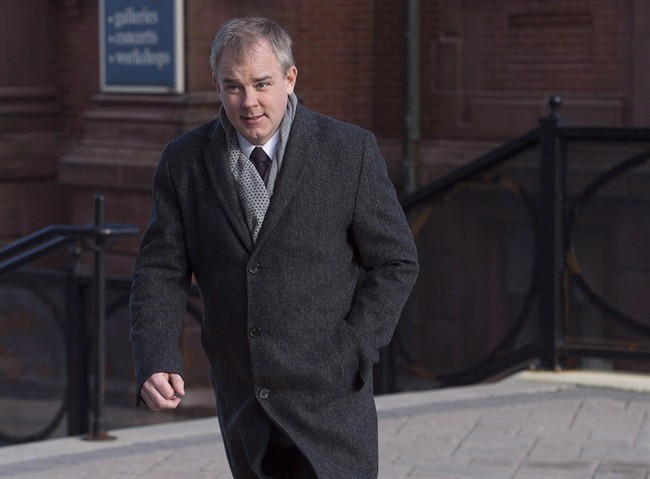An appeal by Dennis Oland on being denied bail while awaiting appeal on his second-degree murder conviction has been allowed by the Supreme Court of Canada.

The decision, which could have influence beyond the high-profile New Brunswick case, found the New Brunswick Court of Appeal erred in failing to intervene on the appeal judge’s decision not to grant bail.
In the decision, Justice Michael Moldaver says, “Mr. Oland’s detention was clearly unwarranted.”
Oland, now 49, had been originally convicted in 2015 for the 2011 killing of his father, well-known businessman Richard Oland, who was brutally murdered in his Saint John, N.B., office in July 2011. Dennis Oland was sentenced to life in prison with no eligibility for parole for 10 years.
The now 49-year-old appealed the conviction and sought bail pending the appeal, but was denied. That decision was then affirmed by the New Brunswick Court of Appeal. However, after the conviction was overturned Oct. 24, 2016, Oland was granted bail a day later by the same court.
Even though the conviction had been overturned and Oland’s bail granted, the Supreme Court chose to still hear the case. During the hearing on Oct. 31, 2016, Oland’s legal team argued the necessity of the appeal moving forward.
READ MORE: Supreme Court to hear arguments on when convicted killers should be granted bail pending appeal
Had the appeal not been rendered moot, Moldaver said “I would have set aside Mr. Oland’s detention order and ordered his release pending appeal.”
In a statement to The Canadian Press Thursday, Richard Oland’s brother Derek said: “We are pleased with today’s Supreme Court of Canada decision and continue to believe Dennis is innocent.”
Oland’s defence lawyer, Alan Gold, said he’s happy with the decision, but told Global News it comes with some sadness.
“Satisfaction [in] being right is sort of tempered quite a bit by the fact Dennis Oland paid a real price for that confusion and had to spend many months in custody unnecessarily when he shouldn’t have,” Gold said.
Oland spent 11 months in prison.
READ MORE: Halifax men accused of assaulting Dennis Oland behind bars appear in court
Given Oland has already been released on bail, there is no immediate effect of the Supreme Court decision on his case, but Gold said the decision is precedent-setting given it is the first time the Supreme Court has outlined what the rules are in this area.
“If someone has a good appeal, even if it’s a serious offence but they are otherwise a good candidate, there’s no risk or harm to the public or committing further offences or that they’re going to run away… then they should be released pending appeal,” Gold said.
University of New Brunswick law professor Nicole O’Byrne says the decision, while a vindication for Oland and his defence team, didn’t set as much of a precedent as she would have expected.
“The next time the New Brunswick Court of Appeal is asked to determine bail pending appeal, they’ll still be weighing and balancing similar factors that they did in [the] Oland [case],” O’Byrne said in an interview with Global News.
Moldaver said in the court’s reasons for the judgment that Parliament did not restrict the availability of bail pending appeal for people convicted or murder, or any other serious crime, “and courts should respect this.”
When deciding to grant bail to someone awaiting an appeal, judges will “draw on their legal expertise and experience” in weighing factors that affect public confidence, he wrote. These include the strength of the grounds of appeal, the seriousness of the offence, public safety and flight risks.
READ MORE: Appeal court calls flaws in Dennis Oland trial ‘serious error of law’
The decision goes on to say that when balancing factors, judges should “keep in mind that public confidence is to be measured through the eyes of a reasonable member of the public.”
The Supreme Court’s decision also points out an error in the appeal judge’s opinion that “clearly arguable” grounds for appeal wasn’t enough for release, and that those grounds were not enough to surpass “not frivolous” criterion.
Moldaver also said that “aside from the seriousness of the offence” Oland was originally convicted for, he “presented as an ideal candidate for bail.”
In Oland’s case, Moldaver said, the considerations “ought to have tipped the scale in favour of release.”
The second trial for Dennis Oland is not expected to begin until at least 2018.
– With files from Andrew Cromwell, Global News and Jim Bronskill, The Canadian Press




Comments